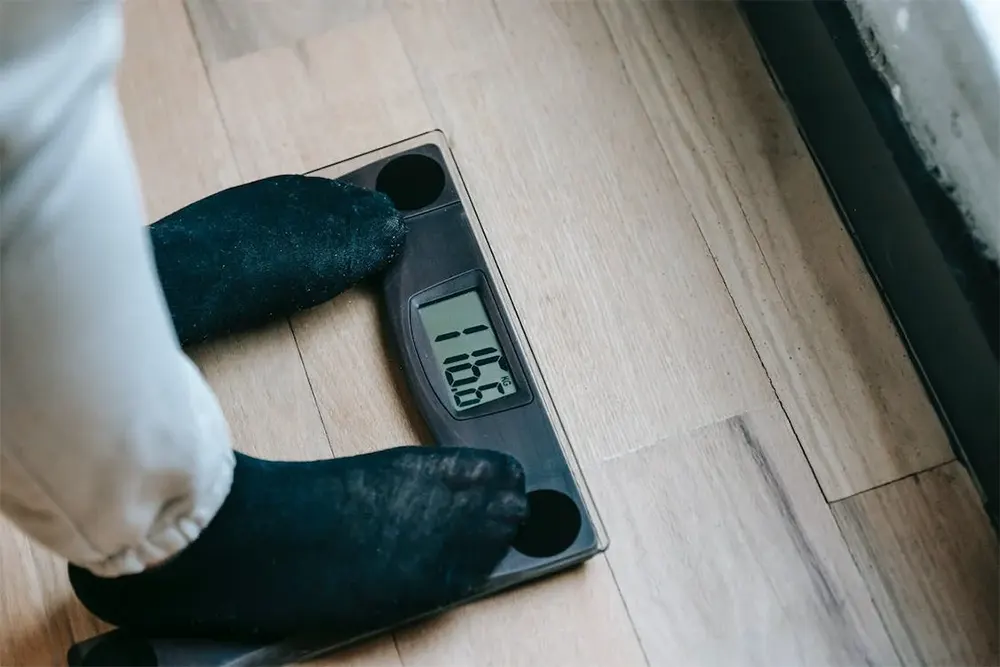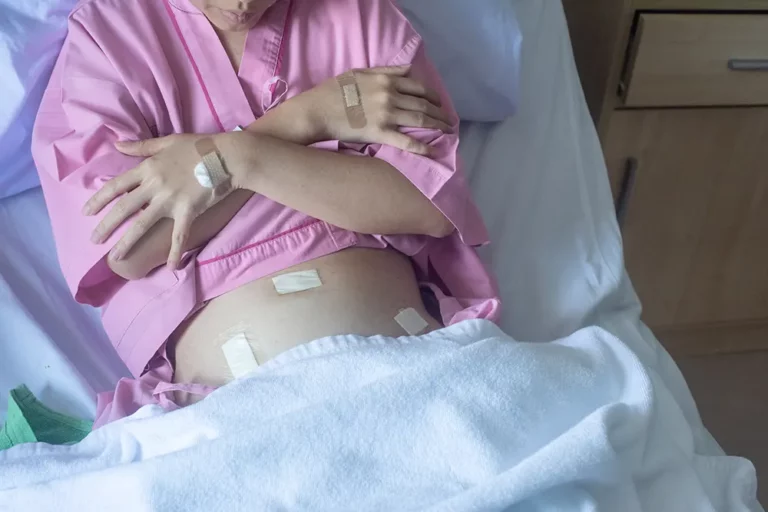Weight Loss After Hysterectomy: Exploring what cause weight loss and weight gain
Side effects of a hysterectomy

The intricate surgical procedure known as hysterectomy involves removing the uterus, and in certain circumstances, the ovaries and fallopian tubes may also be removed. This commonplace intervention is frequently administered to many women grappling with a range of gynecological concerns, including but not limited to fibroids, endometriosis, and pelvic organ prolapse. Although the primary objective of a hysterectomy lies beyond weight loss pursuits, it is not uncommon for women to harbor queries about the potential repercussions on their weight and bodily composition in the aftermath of the procedure. Within this all-encompassing manual, we embark on an exploration of the realm of post-hysterectomy weight loss, delving into the multifarious factors that wield influence and unveiling prudent strategies to deftly navigate and manage one’s weight with sagacity.
The Complex Relationship: Hysterectomy and Weight loss
The Myth of Immediate Weight Loss
Weight loss is not guaranteed after a hysterectomy. Some women may lose weight while others may gain weight or see no significant changes. Many factors, such as hormonal changes, metabolism, lifestyle, and pre-existing conditions, influence how a hysterectomy affects weight. Let’s explore the intricate connection between hysterectomy and weight.
Hormonal Changes and Metabolism
Hysterectomy can disrupt the delicate balance of hormones in the body, particularly if the ovaries are also removed. This hormonal shift may affect metabolism and lead to weight fluctuations. Some women may experience an increase in body fat especially in the abdominal area, due to hormonal changes and a decrease in estrogen levels. However, it is crucial to note that each woman’s hormonal response is unique, and not all individuals will experience significant weight changes.
Lifestyle Factors and Weight Management
While hysterectomy itself may not directly cause weight gain or loss certain lifestyle factors can contribute to changes in body weight. Factors such as physical activity levels, diet, stress management, and overall lifestyle habits play a vital role in weight management. It is important to maintain a balanced and healthy lifestyle to support your overall well-being and manage your weight effectively.
Strategies for Managing Weight After a Hysterectomy
Adopting a Healthy Eating Plan
Establishing and adhering to a nourishing and harmonious dietary regimen emerges as a pivotal aspect in the post-hysterectomy journey towards optimal health. Prioritize the consumption of whole, unprocessed foods brimming with vital nutrients, such as vibrant fruits, verdant vegetables, lean sources of protein, wholesome grains, and beneficial fats. In contrast, it is prudent to minimize the intake of processed fare, saccharine indulgences, and superfluous caloric loads. Remain mindful that the art of portion control assumes a paramount role in effectively managing weight fluctuations.
Incorporating Regular Physical Activity
Regular physical activity can support weight maintenance and enhance overall fitness following a hysterectomy. Consult your healthcare provider or a certified exercise specialist to create a personalized exercise plan tailored to your needs and abilities. During the recovery period, low-impact activities like walking, swimming, yoga, and cycling can be advantageous.
Prioritizing Self-Care and Stress Management
Managing stress is crucial for both weight management and overall well-being. Prioritize self-care and adopt healthy strategies to cope with stress. Engage in activities that promote relaxation and mental well-being, such as meditation, deep breathing exercises, journaling, or pursuing enjoyable hobbies. By tending to your emotional health, you can positively impact your journey towards weight management.
Seeking Professional Guidance
If you are concerned about weight management after hysterectomy, it is advisable to speak with your doctor or a registered dietitian. They can provide personalized guidance and support based on your specific needs and medical history. Remember that everyone’s journey is unique, and seeking professional advice can help you navigate the process more effectively.
Is weight loss after a hysterectomy your main concern?
Weight loss after hysterectomy is a complex and individualized journey. While some women may experience weight changes others may not notice significant differences. It is important to focus on overall health and well-being rather than solely on weight loss. Prioritize adopting a healthy lifestyle including regular physical activity, nutritious eating habits, and stress management. Remember that weight is just one aspect of your overall health, and maintaining a positive body image and self-acceptance are equally important.
If you have any concerns or questions about weight management after hysterectomy, don’t hesitate to speak with your healthcare provider. They can provide valuable guidance, address any specific concerns you may have, and help you develop a personalized plan that suits your individual needs.
While weight loss after hysterectomy may vary from person to person, it is essential to approach the journey with a focus on overall health and well-being. By adopting a balanced lifestyle, incorporating regular physical activity, and seeking professional guidance when needed, you can navigate this phase of your life with confidence and maintain a healthy weight that supports your overall wellness.
Remember, you are more than just a number on a scale, and your worth is not determined by your weight. Embrace your body, celebrate your journey, and prioritize self-care as you embrace the possibilities and new beginnings that lie ahead after hysterectomy.
Belly fat after hysterectomy

The emergence of belly fat following this type of surgery can be attributed to a multitude of factors, including hormonal fluctuations, lifestyle adjustments, and overall health status. Hormonal changes, such as a decrease in estrogen levels, may influence fat distribution, causing a propensity for fat storage in the abdominal region. Lifestyle modifications, such as reduced physical activity during the recovery period or changes in exercise routines, can also impact body composition. Additionally, general health factors, such as age, genetics, and metabolic rate, play a role in determining how the body responds to the surgery and the subsequent changes it undergoes.
Integrating consistent physical activity into your routine, encompassing cardio exercises and strength training, holds the potential to revitalize your metabolism and contribute to the reduction of excess body fat. By partaking in focused exercises that specifically target the core and abdominal muscles, you can effectively enhance muscle tone and firmness, ultimately bestowing upon your midsection a more sculpted and defined aesthetic.
Adopting a nourishing and well-balanced diet is a cornerstone of managing belly fat. Emphasize nutrient-dense foods, including a variety of fruits, vegetables, whole grains, and lean proteins. These choices provide essential vitamins, minerals, and fiber while helping to curb cravings and promote satiety. By fueling your body with wholesome options, you can optimize your metabolism and contribute to a healthier waistline.
Beyond diet and exercise, lifestyle choices can significantly impact belly fat accumulation. Adequate sleep, stress management techniques, and mindful eating habits all contribute to a healthier waistline. Prioritize self-care and create a supportive environment that encourages positive lifestyle choices. By embracing a holistic approach to well-being, you can reduce belly fat and enhance your overall quality of life.
Frequently Asked Questions about Weight Loss after Hysterectomy:
Q: Can I get pregnant after a hysterectomy?
A: Pregnancy is not possible after a hysterectomy because the procedure involves the removal of the uterus. If preserving fertility is a concern, it is essential to have a discussion with your doctor before undergoing the surgery to explore alternative options currently available.
Q: Is there a link between hysterectomy and menopause?
A: While it is true that in certain instances, the removal of ovaries during a hysterectomy can trigger the onset of menopause, it is important to recognize that even if the ovaries remain untouched, the natural progression of menopause may still manifest in later stages of life. Consequently, seeking counsel from your healthcare provider regarding the potential repercussions on hormonal equilibrium becomes paramount. By engaging in such discussions, you can acquire invaluable insights into the intricate interplay between a hysterectomy and its potential impact on your body’s hormonal dynamics.
Q: How long is the recovery time after a hysterectomy?
A: The time frame for recovery from hysterectomy can go from 4 to 6 weeks, of course it depends on the individual since each case is unique, therefore it is crucial to follow your doctor’s instructions for a successful and full recovery.
Q: Can I experience weight loss after a hysterectomy?
A: Weight loss following a hysterectomy can be observed in certain women, although the extent of this phenomenon differs on an individual basis. Multiple factors, including fluctuations in hormone levels, alterations in lifestyle practices, and overall well-being, may contribute to this occurrence. It is of utmost importance to prioritize a balanced and enduring strategy when it comes to weight management, emphasizing health-conscious methods that are sustainable in the long term. By adopting this approach, women can optimize their chances of achieving and maintaining their desired weight goals after undergoing a hysterectomy.
Q: Are premenopausal women at a higher risk of weight gain after a hysterectomy?
A: Premenopausal women may be at a slightly higher risk of weight gain after a hysterectomy due to the potential hormonal changes that can occur. However, maintaining a healthy lifestyle including a balanced diet and regular exercise, can help minimize the risk of weight gain.
Q: Can the removal of ovaries during a hysterectomy affect weight?
A: The removal of ovaries during a hysterectomy can have an impact on weight. Ovaries produce hormones that can affect metabolism and body composition. Therefore, their removal may contribute to changes in weight or body fat distribution, for example increasing belly fat.
Q: How can I lose weight after this procedure?
A: Losing weight after a hysterectomy requires a multifaceted and all-encompassing approach that delves into various aspects. It is highly recommended, nay, strongly urged, to engage in a thorough consultation with a healthcare professional, an esteemed expert in the field, who can craft an exercise routine tailored to your specific needs and a well-balanced diet plan that caters to your unique requirements. Integrating a myriad of invigorating low-impact exercises, including the ever-important pelvic floor exercises and exhilarating cardio activities, alongside the adoption of wholesome and nutritious eating habits, serves as a formidable backbone, bolstering your valiant efforts in the realm of weight management.
Q: What type of hysterectomy has a higher risk of weight gain?
A: Certain types of hysterectomy particularly those involving the removal of both the uterus and ovaries, may have a higher risk of weight gain. The hormonal changes resulting from the removal of ovaries can influence metabolism and potentially contribute to weight fluctuations.





